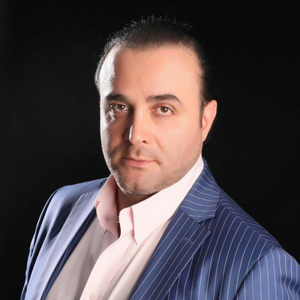سینا سرلک، متولد آبان ۱۳۶۱ در الیگودرز، ایران، یکی از خوانندگان برجسته موسیقی سنتی ایرانی است. او از دوران کودکی تحت تأثیر پدرش وارد دنیای موسیقی شد و به آموختن ملودیهای غنی منطقه بختیاری پرداخت. در سن هفت سالگی، استعداد خود را با اجرای یک ترانه محلی در مجموعه تلویزیونی «شاخه طوبی» که از شبکه یک صدا و سیمای ایران پخش میشد، به نمایش گذاشت. این تجربه نخستین، مسیر او را به سوی یک زندگی حرفهای در موسیقی هموار کرد.
آموزش رسمی سرلک با یادگیری ساز تنبک آغاز شد. او تحت نظر حسن رضایی در الیگودرز، اصول این ساز را فراگرفت و سپس برای تکمیل مهارتهای خود نزد استاد جمشید محبی و بعدها به مدت شش سال نزد زندهیاد ناصر فرهنگفر به تحصیل پرداخت. تلاشهای او نتیجه داد و موفق شد در جشنوارههای موسیقی فجر، مقام نخست را در بخش آواز و تنبک کسب کند. قربان سلیمانی، او را به استاد محمدرضا شجریان معرفی کرد و این آشنایی موجب شد که سرلک به مدت هشت سال نزد این استاد برجسته، ردیفهای آوازی و تکنیکهای آواز سنتی را بیاموزد. علاوه بر این، او تحت آموزش کیوان ساکت، نوازندگی ساز تار را نیز فراگرفت.
در طول دوران حرفهای خود، سینا سرلک با ارکسترهای برجستهای همکاری داشته است. او در ارکستر ملی ایران به رهبری فرهاد فخرالدینی و همچنین در ارکستر سمفونیک تهران در زمان مدیریت نادر مشایخی به اجرا پرداخته است. همچنین، او با ارکستر پایور و ارکستر ملل به سرپرستی پیمان سلطانی همکاری کرده است. در اسفند ۱۳۸۲، سازمان ملی جوانان از او به عنوان «جوان نمونه در عرصه هنر» تقدیر کرد که نشان از جایگاه ارزشمند او در موسیقی ایران دارد.
آثار سینا سرلک بازتابدهنده عشق عمیق او به موسیقی سنتی ایران است و در عین حال، ترکیبی از سبکهای سنتی و معاصر را ارائه میدهد. از جمله آثار برجسته او میتوان به آلبومهای «هفت شهر عشق»، «تنهایی» و «رویا» اشاره کرد که با استقبال گسترده مخاطبان مواجه شدهاند. همکاریهای او با هنرمندان مطرحی همچون محسن چاوشی در قطعه «فندک تبدار»، توانایی او در تطبیق با سبکهای مختلف موسیقی را نشان میدهد. تعهد همیشگی او به هنر، باعث شده است که نام او به عنوان یکی از چهرههای مهم در حفظ و ترویج موسیقی سنتی ایرانی ثبت شود.
Sina Sarlak, born in November 1982 in Aligudarz, Iran, is a distinguished Iranian vocalist renowned for his contributions to traditional Persian music. His musical journey commenced in childhood under the mentorship of his father, immersing himself in the rich melodies of the Bakhtiari region. At the age of seven, he showcased his burgeoning talent by performing a local song on the television series “Shaakheh Tooba,” broadcast on Iran’s Channel 1. This early exposure paved the way for a dedicated pursuit of music.
Sarlak’s formal training began with learning the tombak, a traditional Persian percussion instrument, under the guidance of Hassan Rezaei in Aligudarz. To further refine his skills, he studied with the esteemed Jamshid Mohebbi and later spent six years under the tutelage of the late Nasser Farhangfar. His dedication bore fruit as he secured first-place accolades in both vocal and tombak categories at several Fajr Music Festivals. Recognizing his potential, Ghorban Soleimani introduced him to the legendary Mohammad Reza Shajarian, with whom Sarlak studied for eight years, mastering vocal techniques and the intricacies of Persian classical repertoire. Additionally, he expanded his musical prowess by learning the tar, a Persian stringed instrument, under Keyvan Saket.
Throughout his illustrious career, Sarlak has collaborated with several prominent Iranian orchestras. He lent his voice to the National Orchestra of Iran under the baton of Farhad Fakhreddini and collaborated with the Tehran Symphony Orchestra during Nader Mashayekhi’s leadership. His versatility also led him to perform with the Payvar Orchestra and the Melal Orchestra, directed by Peyman Soltani. In March 2004, his artistic achievements were recognized when the National Youth Organization honored him as the exemplary young artist in the field of arts.
Sarlak’s discography reflects his deep appreciation for Persian musical heritage, seamlessly blending traditional and contemporary elements. Notable works include “Haft Shahre Eshgh,” “Tanhayi,” and “Roya,” each resonating with audiences and showcasing his emotive vocal delivery. His collaborations with other esteemed artists, such as the duet “Fandake Tab Dar” with Mohsen Chavoshi, highlight his adaptability and commitment to evolving within the musical landscape. Sarlak’s enduring dedication to his craft has solidified his status as a pivotal figure in preserving and promoting Iranian musical traditions.

